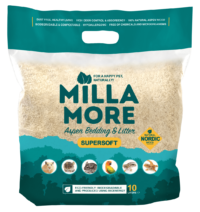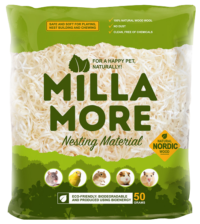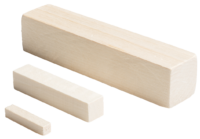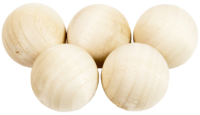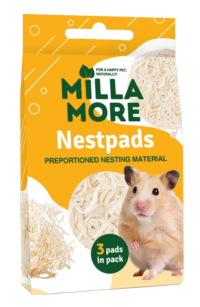Chinchilla feed and dental care
Chinchilla feed and dental care
What do chinchillas eat?
Chinchillas are herbivores and, in their native South America, they eat grasses, low-growing green plants and chew the bark off trees. Chinchillas need a diet high in fibre and protein but low in moisture and fat. High fat foods will give them liver disease and greens which are too lush will cause colic or make them bloated. A diet lacking in fibre causes poor gut movement, allows their teeth to become overgrown and can even lead to fur chewing. They also need a high vitamin C diet, so they must not be fed rabbit mix.
Chinchilla foods are available to buy in pet shops. The pellet type is best because with mixes your chinchilla may pick out favorite bits, leading to an unbalanced diet. The pellets you feed your chinchilla should be rationed to about one tablespoon per day for a healthy adult.
Pellets are not enough on their own though – chinchillas also need a constant supply of good quality hay. Put the hay in a small rack and refill it every day. As with all animals, make sure there’s a constant supply of fresh drinking water.
Chinchilla treats
Raisins and sultanas are ideal treats for chinchillas and can be used as a reward in training too. Avoid feeding your chinchilla too many though to make sure they still see raisins as a treat.
Some chinchillas also enjoy a little slice of fresh vegetable, like carrot, but take care not to give them too much because it may cause diarrhea. Peanuts and sunflower seeds should be avoided, as they are too high in fat. Do not give them too many treats because this can cause an upset stomach.
Chinchilla dental care
As with all rodents, chinchilla teeth are always growing so they need plenty of hard material to eat and chew on. A piece of apple wood or rodent toys from pet shops for them to nibble will help prevent dental problems.
Sadly, even the best-kept chinchilla may develop problems with their teeth and these can become serious if left untreated. Signs to look out for include reluctance to eat, drooling and wetness under the chin and runny eyes. If your chinchilla shows any of these symptoms it’s important to ask your vet to check their teeth.
How to stop chinchillas fur chewing?
Fur chewing may be a sign of stress, boredom or poor diet. Chinchillas are social animals and need the companionship of another chinchilla. If you do have just one you need to spend lots of time keeping them entertained – grooming, playing and handling – but please do consider getting a second chinchilla for company.
Chinchillas that are not given hay may start to chew their own or their companions’ fur to make up for the lack of fibre in their diet. If you move house or move your chinchilla to a new location in your house, this could cause stress-related fur chewing. Whatever the cause, fur chewing is a difficult habit to break so prevention is better than cure.
https://www.bluecross.org.uk/pet-advice/caring-your-chinchilla
